British former female boxing champion on fighting prejudice, cancer and formidable opponents
- Michele Aboro, a former WIBF super bantamweight world champion, has been sharing her life story of immense resilience around China
- She opened a boxing academy in Shanghai after beating Stage 3 breast cancer, and also has a foundation in China using boxing to help young people
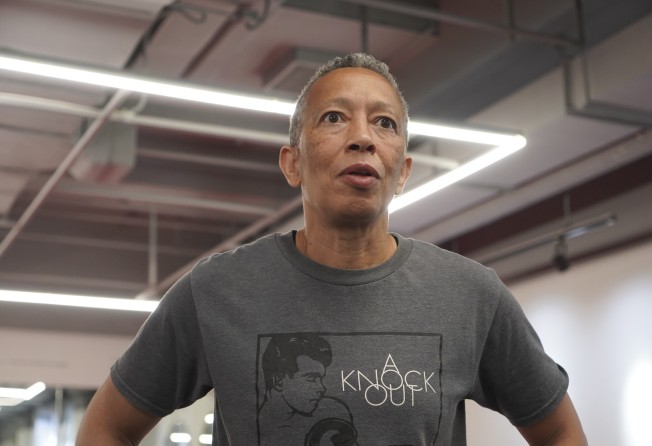
Former world champion boxer Michele Aboro believes in self-empowerment through combat sports, whether that’s through her work teaching sex workers in the Netherlands self-defence skills, boxing with nuns in Britain or training wayward Shanghai teens to become professional boxers.
“Combat sports heal. They put you in a place where you believe anything is possible. You think you can’t do a punch or you can’t move out of the way of a punch. [Then] you are able to do it. It makes you feel good. The sense of achievement is profound. It puts you on a path to enlightenment and becoming a better you,” Aboro, 52, says.
The 163cm (five foot four inches) British boxer, who holds a professional boxing record of 21 wins, no losses and 12 knockout victories over a seven-year career, was in Beijing recently teaching a boxing masterclass organised by Krav Maga Global China (Krav Maga is the hand-to-hand combat system developed for the Israel Defence Forces).
Since relocating to Shanghai in 2009 to be with her photographer partner Masca Yuen, Aboro has been sharing her life story around China in talks and boxing lessons. It is a story of immense resilience: overcoming gender discrimination in the boxing world, beating Stage 3 breast cancer, and opening a boxing academy in Shanghai straight out of hospital.
Despite falling in love with boxing as a child, she was not allowed to pursue the sport in England as women at that time were not allowed professional boxing licences. She was forced to switch to kick-boxing instead, and later moved to the Netherlands where her kick-boxing career thrived.
“[In England], I was told I couldn’t box. I was nine years old [then]. It was the first time in my life I was told I couldn’t do something because I was a girl. It was devastating,” Aboro says. “Kick-boxing was legal in England [for women then]. Martial arts and judo [also] didn’t have the stigma.” Only in 1996 were women allowed to be professional boxers in Britain.
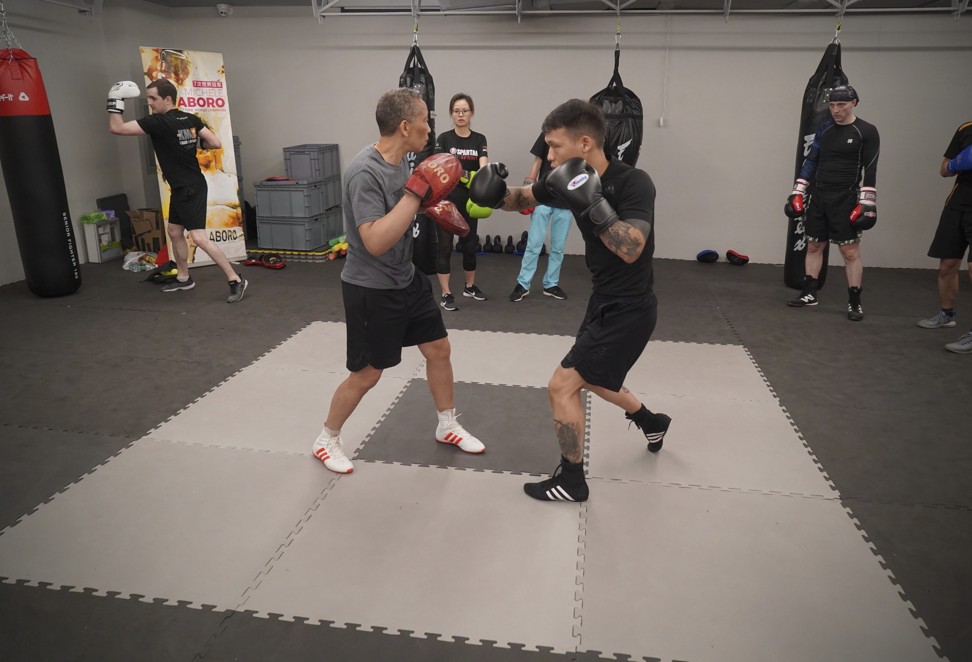
In 1995, at the age of 27, Aboro finally entered the world of professional boxing after getting a work contract in Germany. She won the Women’s International Boxing Federation (WIBF) super bantamweight world title (118lb to 122lb / 54kg to 55kg division) in 2000 and defended it three times before stepping away from the sport in 2002. From 1999 to 2002, she was voted “pound for pound” the best female boxer in the world for four consecutive years.
After stepping away from the ring, she went back to school to study sound engineering and worked for musicians including Amy Winehouse, Ana Moura, Antony and the Johnsons, Joan as Police Woman, and The White Stripes.
The switch from sports to music was a humbling experience.
“This really taught me how to serve other people. For 20 years I competed at the very top of professional sport [where] people looked after me. Monitoring the sound on stage and in concert halls was very down to the ground. I looked after people. It was a total turnaround of roles,” she says.
“I trained the band members on the road. We did boxing, kick-boxing, yoga and fitness. We had fun. We slept on the tour bus. When we woke up, we were in another country. Being a sound engineer, work was a lot more gruelling than being a sports person.”
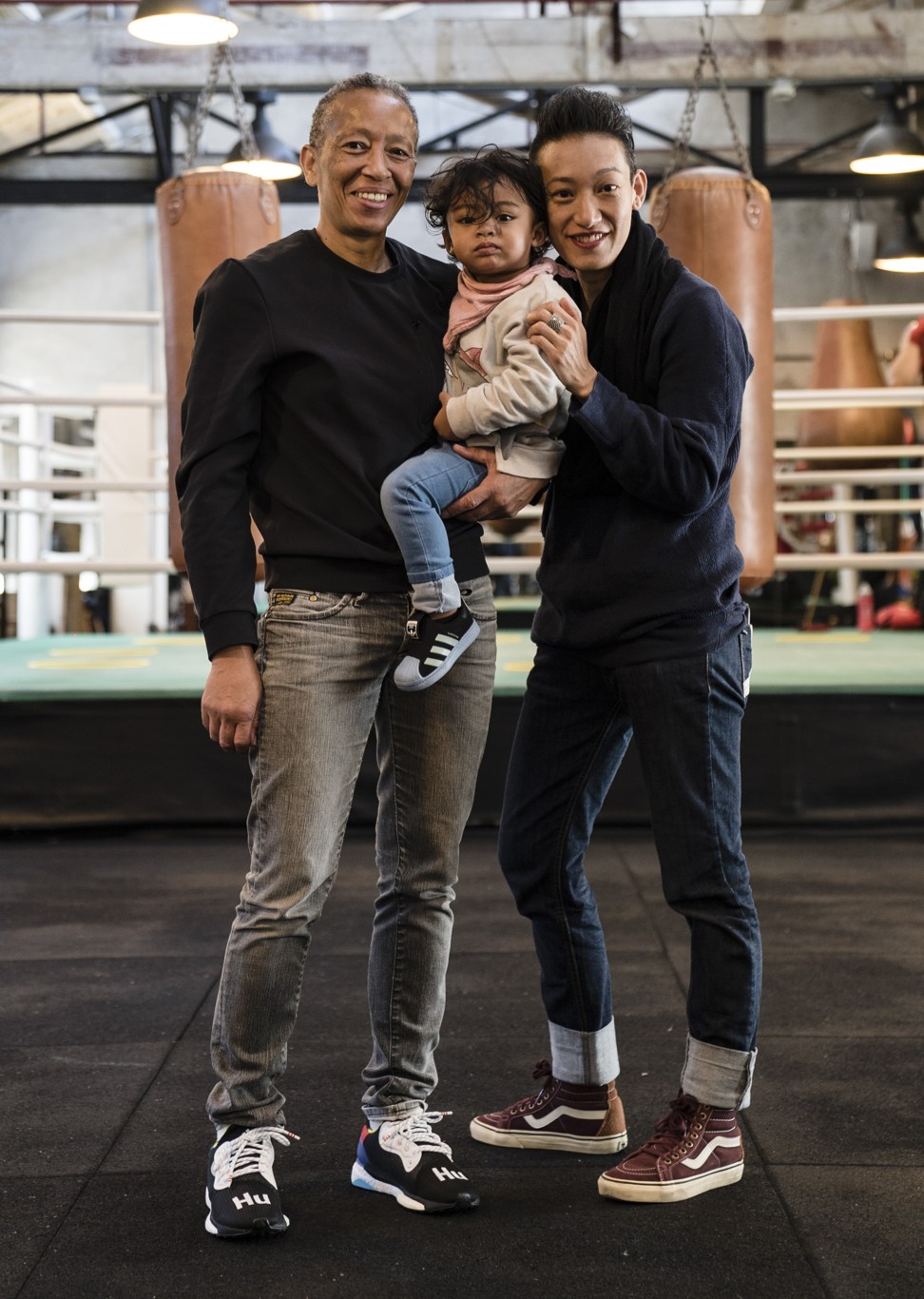
After relocating to Shanghai in 2009, Aboro co-founded a boxing gym with two partners. But in 2012 she was diagnosed with breast cancer, which led her to rethink her priorities in life.
“When I was told I had cancer, I didn’t believe it, because I thought I am very healthy and fit. I looked at the gym I was running then. It was not something that I wanted to do. I wanted to open my own gym with Masca. That’s the reason we went to China,” she says.
“You only live once. I need to live this life as best as I can and realise my full potential as a human being.”
Cancer scared me … [But] the [biggest] fear I have had in life was facing a formidable opponent
The pair set up the Aboro Foundation in 2013 with a mission to provide physical education and nutrition programmes for young people. A year later, they opened the Aboro Academy to offer boxing training.
Instead of taking a rest after chemotherapy, Aboro trained her partner to teach boxing and offered ringside guidance to students.
“I didn’t have a choice because we opened it and we had to run it. I exercised and I used my hands. I was very swollen from the drugs. I stretched until sometimes my stitches popped. I started using [boxing] pads again. I just kept on doing what I had always done,” she says.
“Around four years after treatment, I felt my body was mine again. My body was not bloated. I didn’t have sores in my mouth and body. My hair started growing.”
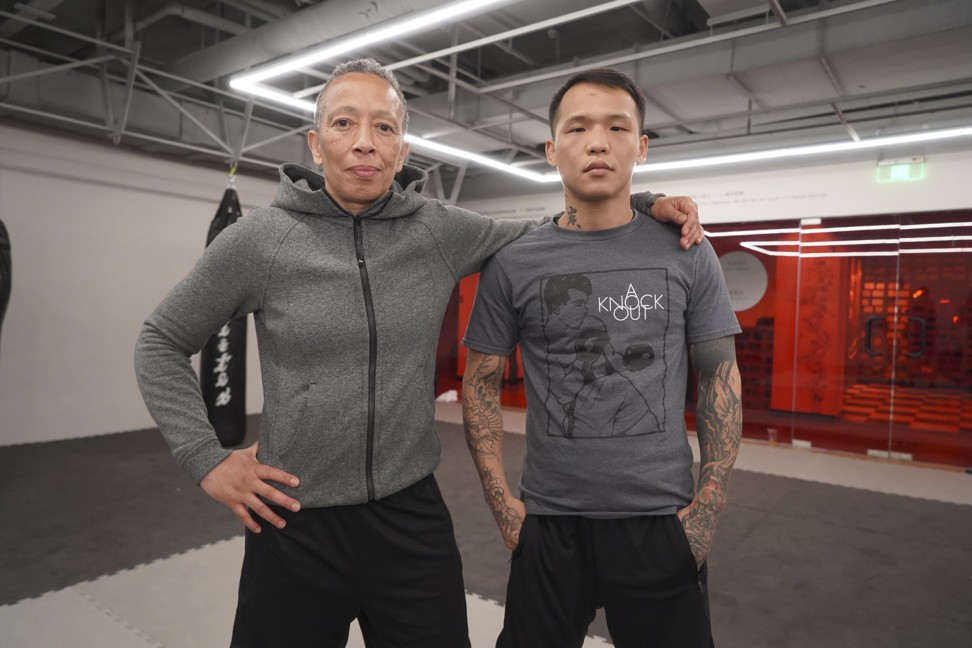
For all the pain and horror of treatment, Aboro says battling cancer was less scary than the possibility of losing in the ring.
“Cancer scared me. But I believe that with my partner, I could beat this. I didn’t believe at all for one second the cancer would kill me.
“The [biggest] fear I have had in life was facing a formidable opponent. I had a fight that was very close. It was in 2001. And my opponent, Kelsey Jeffries, was very good. I remember the bell rang in the tenth round. I went into a corner. I was so scared I was going to lose. That was the most scary moment in my life.”
Turns out she had little to worry about. She beat Jeffries by unanimous decision and in doing so successfully defended her WIBF super bantamweight title.
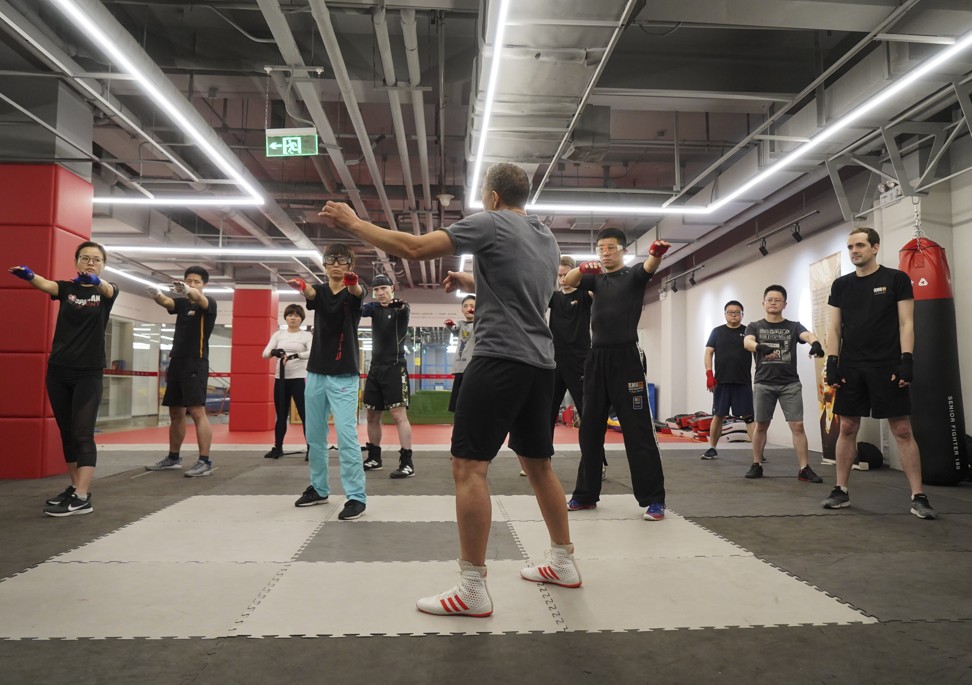
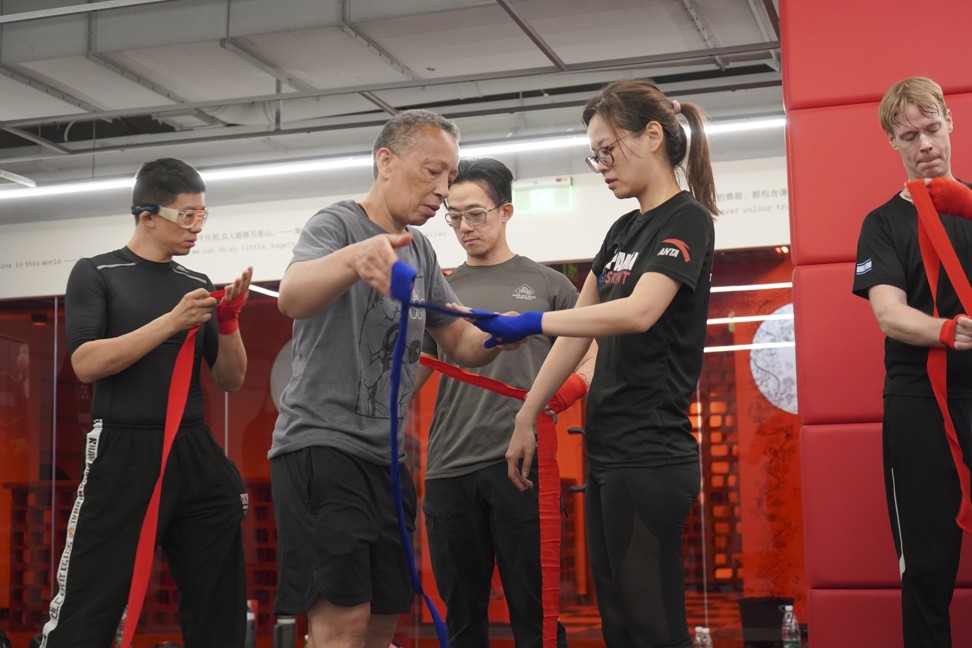
After overcoming cancer and countless other hurdles in her life, Aboro took up a new challenge two years ago when she became the mother of a baby girl.
She and Yuen married in 2016 and afterwards went to Cambodia for IVF treatment, where Yuen’s egg was fertilised with a donor’s sperm.
“Masca was the carrier. The donor from the sperm bank is mixed like me, with half black and half white [blood],” she says.
“[Being a mother] is very difficult, but it is an amazing experience.”